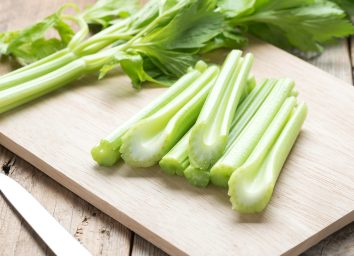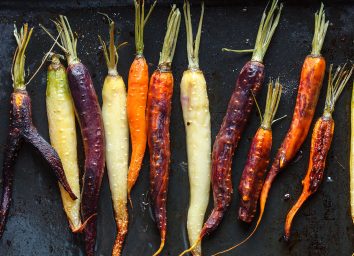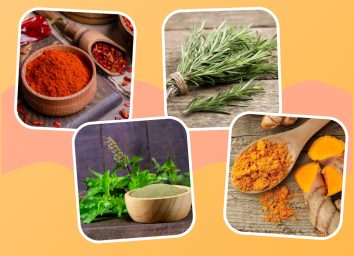One Major Effect of Eating Carrots, Says Science
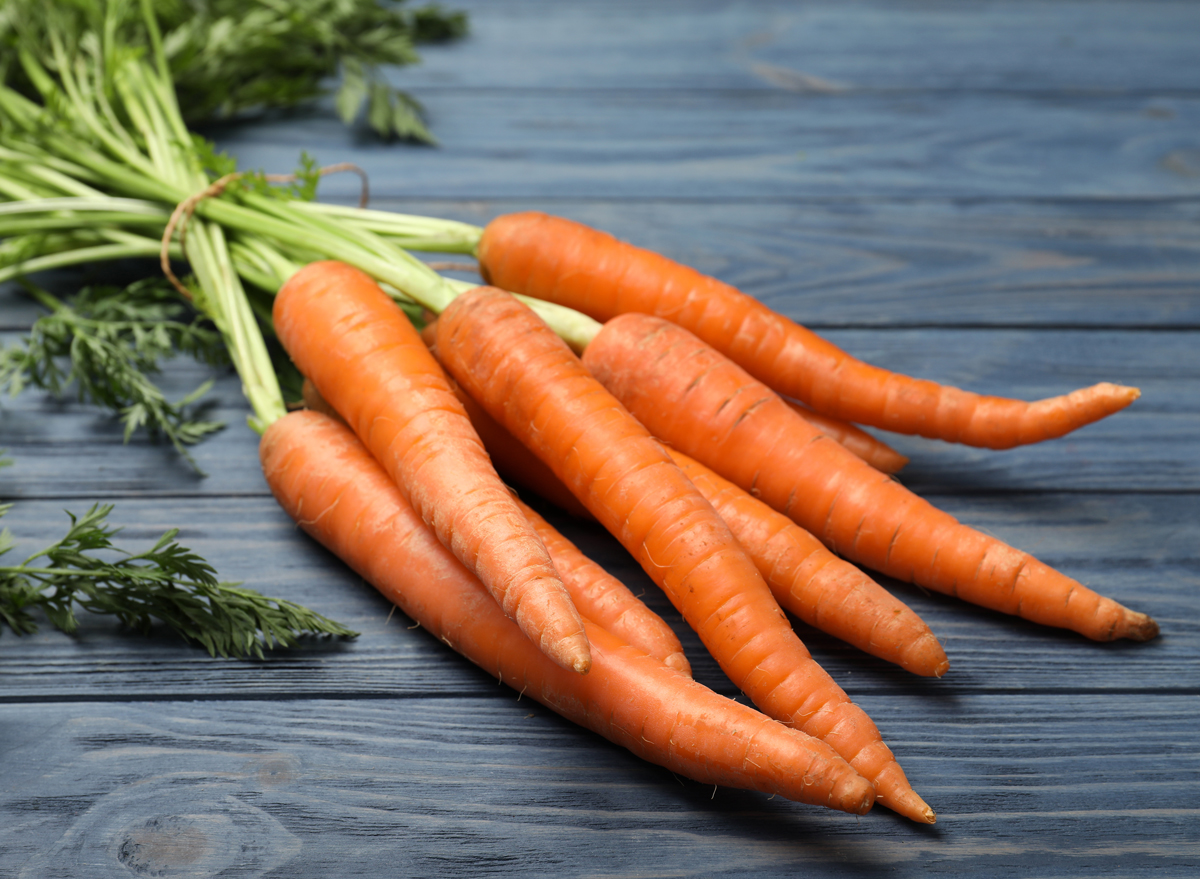
Besides potatoes, carrots are one of the most popular root vegetables in our diets—and for good reason. This veggie has a long shelf life, it can be eaten both raw and cooked, it tastes amazing, and it's a staple of many recipes. On top of their usefulness in cooking, carrots are also incredibly nutritious.
Like other brightly colored vegetables, carrots are a gold mine of antioxidants. Antioxidants are plant-based compounds that can neutralize the effect of free radicals that cause cellular damage, inflammation, and cancer. Carrots happen to have many of these free radical-fighting antioxidants: carotenoids, polyphenols, and vitamins.
With carrots' high levels of antioxidants, one impressive effect of eating this vegetable is reaping its cancer-fighting benefits.
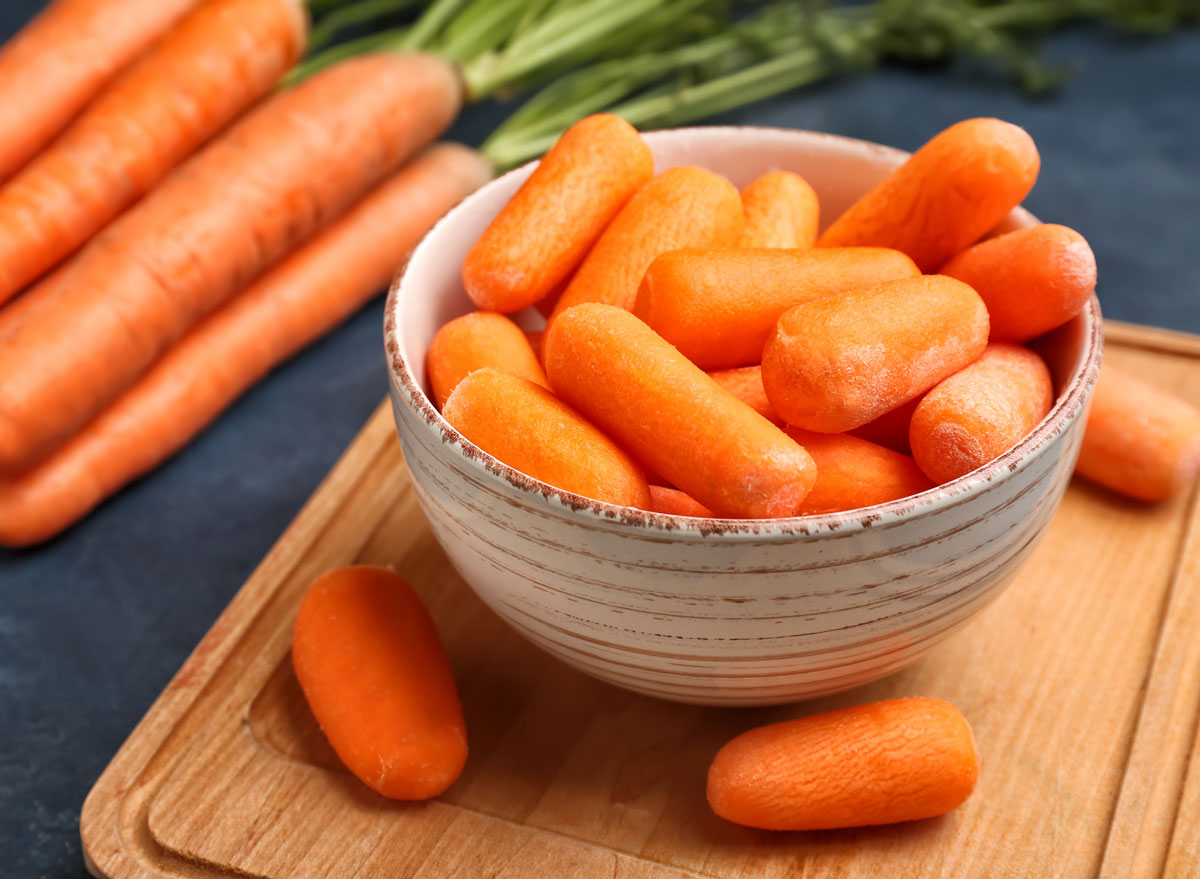
Various studies have shown that eating carrots may play a major role in the prevention of gastric cancer, colon cancer, prostate cancer, leukemia, and lung cancer.
Many of these studies have linked carrot intake to an inverse incidence of cancer, and researchers believe that this may be attributable to the bioavailability of two carotenoids (α-carotene and β-carotene); carotenoids are compounds that have high antioxidant activity.
Antioxidants work through several mechanisms, but ultimately, they act to modulate oxidative stress that is caused by normal metabolic activity as well as lifestyle factors such as smoking, exercise, and diet. High levels of oxidative stress have been linked to higher rates of inflammation and several chronic diseases like cancer.
Carrots are one of the best sources of carotenoids you can eat. Cooked carrots contain high levels of two carotenoids: 3,723 micrograms of α-carotene and 9,771 micrograms of β-carotene (that concentration is only beat by dried apricots).
How many carrots do you need to eat to reap these benefits? One study showed that consuming just 67 grams of carrots a day was linked to a reduced risk of prostate cancer. That's the equivalent of just one medium-sized carrot or half a cup of sliced carrot.
Of course, simply eating carrots isn't enough to reduce your risk of cancer. Many lifestyle habits are linked to cancer, including smoking, alcohol intake, lack of exercise, and a poor diet. Genetics and other health conditions like obesity and diabetes also increase your cancer risk. Adding carrots to your diet is just one way you can reduce your risk of this deadly disease.
For more healthy eating news, make sure to sign up for our newsletter!
Read this next:
